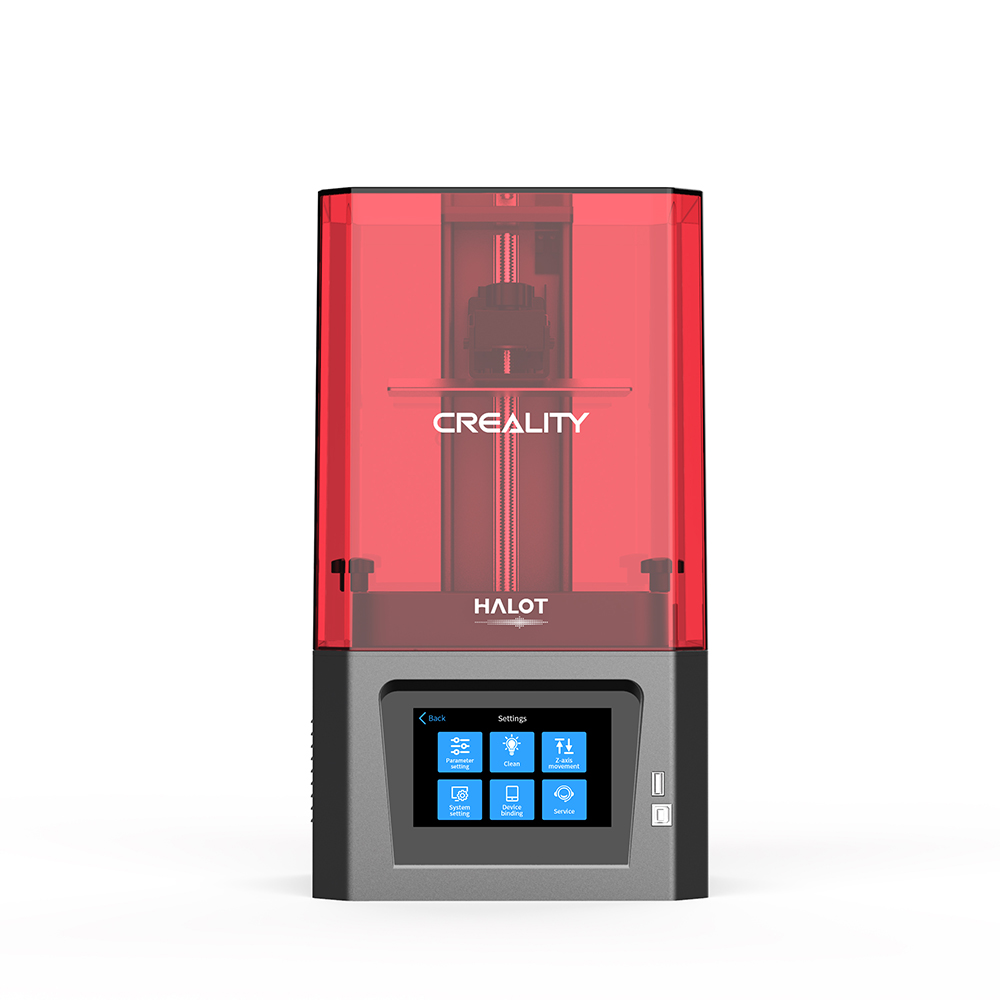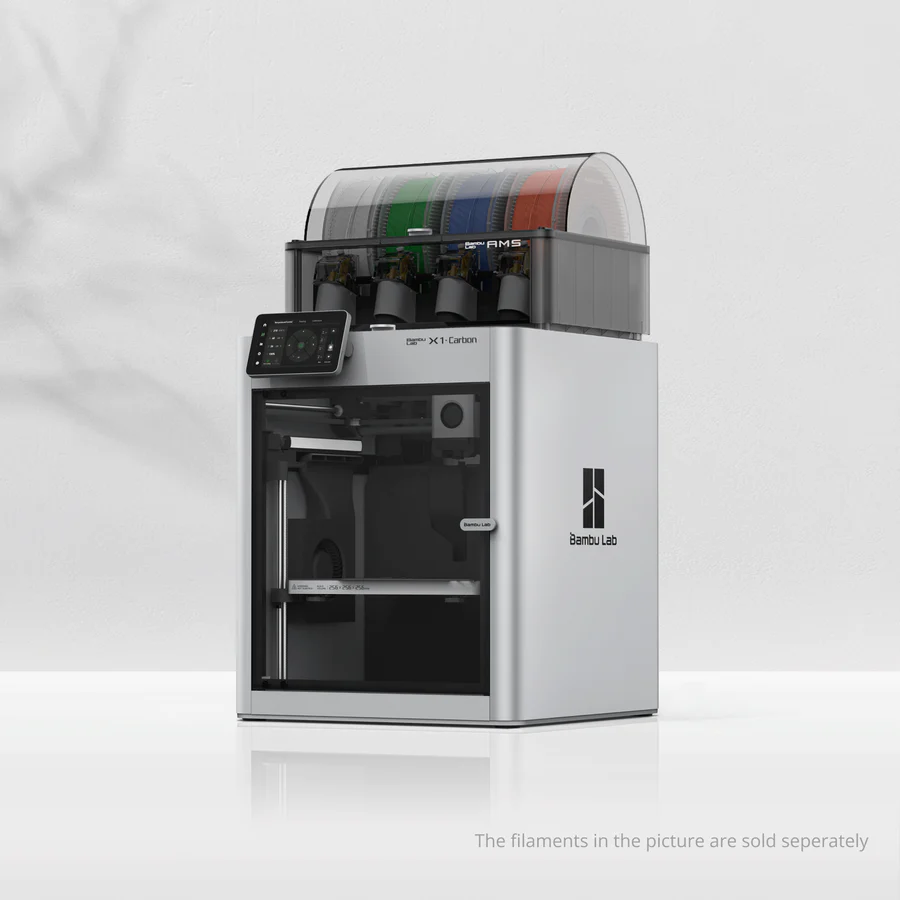Compare Halot One vs X1 carbon
Comparison between the best 3D printers
Choose the best 3D printer at the best price. The cheapest 3D printers are here.
Buy a 3D printer here with 3D Fila.
 |
 |
|
| Model | Halot One |
X1 carbon |
| Printing Material | Resin | Filament |
| Buy Resin for Creality 3D Halot One | Buy Filament forBambu Lab X1 carbon | |
| Estimated price | $250,00 | $1449,00 |
| Manufacturer | Creality 3D | Bambu Lab |
| Release Year | 2021 | 2023 |
| Print Volume [mm] | 127x80x160 | 256x256x256 |
| Printer Size [mm] | 221x221x404 | 389x389x457 |
| Weight [kg] | 7,1 | 14,13 |
| Power Loss Recovery | NO | YES |
| Maximum Resolution [mm] | 2k | 0,1 |
| Processor | Quad ARM A7 1.2 GHz | |
| Display | Touchscreen 5'' | |
| Power Supply | 350 W | |
| Connectivity | Wifi, Bambu bus, Cartão SD | |
| Operating systems | Windows, Mac, Linux | Windows, Linux, Macbook |
| Date of registration in the system | 2022-10-11 | 2024-04-10 |
| Release date | 2021 | 2023 |
| Extra features | Crealitys Halot-One printer stands out with several innovative features. It has a high-resolution touchscreen, providing an intuitive and responsive interface. Its quiet printing capability is remarkable, ideal for environments where noise is a concern. Assembly and setup are simple, with automatic functions facilitating quick start. Among its features, remote monitoring and adjustments via the Creality Cloud app stand out, simplifying remote print management. Replacing the FEP in the resin vat is easy, and the printer even includes extra FEP sheets. Top cover removal detection increases safety by automatically pausing printing. In addition, its integral light source promises high uniformity, optimizing print quality. | The Bambu Lab X1 Carbon revolutionizes 3D printing with stunning design, high print speeds, and a streamlined user experience. It stands out with its CoreXY system, a hotend capable of reaching 300°C, allowing for a wide range of filaments. Its LiDAR-assisted bed leveling system, vibration compensation, and AMS multicolor printing capability raise the industry standard. Print quality is impressive, with the ability to fine-tune for perfection. The X1 Carbon, with its closed build volume, not only promises but also delivers one of the most advanced 3D printing experiences available to consumers. |
| Support for multiple colors and materials (AMS and CFS) | NO | YES |
Notes * |
||
| Cost-benefit | 8 / 10 | 7 / 10 |
| Hardware | 0.6 / 10 | 6.4 / 10 |
| Tela | . | . |
| Print volume | 3 / 10 | 4 / 10 |
| Performance | 9 / 10 | 4 / 10 |
Conclusion |
| In conclusion, the comparison between the Creality 3D Halot One and the Bambu Lab X1 Carbon reveals two distinct 3D printers designed to cater to varying user needs and budgets. The Halot One, positioned at a significantly lower price point, offers excellent value, especially for beginners or hobbyists. Its compact size, quiet operation, and user-friendly features—such as touchscreen controls and easy setup—make it an attractive option for those new to 3D printing or those seeking a cost-effective solution for resin printing. On the other hand, the Bambu Lab X1 Carbon represents the pinnacle of 3D printing technology with its advanced features, including a larger print volume, high-temperature capability for versatile filament use, and sophisticated user experience enhancements like LiDAR bed leveling and AMS multicolor printing. Although it comes at a higher price, its exceptional performance, print quality, and advanced functionalities justify the investment for serious makers or professionals who require advanced capabilities. Ultimately, the choice between these two printers will depend on the user's specific needs, priorities, and budget. The Halot One is ideal for budget-conscious individuals or those looking for straightforward functionality, while the X1 Carbon is designed for users wanting high-end performance and flexibility in their 3D printing endeavors. |

